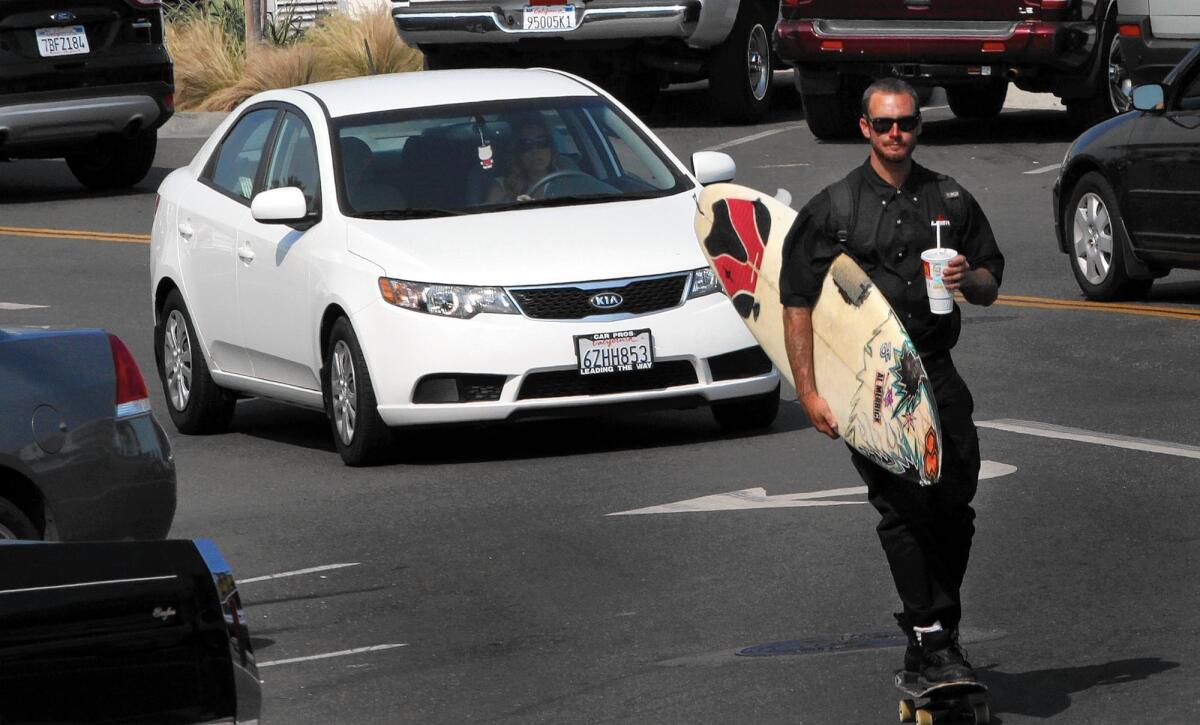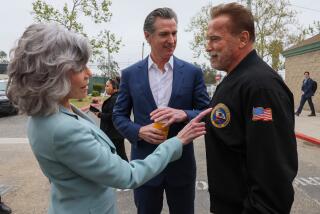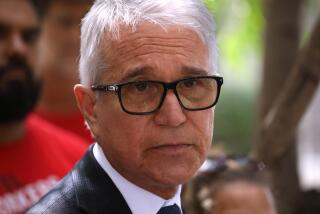Oil drilling, taxes, zoning will appear on Southland cities’ ballots

Voters in two Los Angeles County cities will step into the contentious debate over where and how the nation should drill for oil when they consider ballot measures on Tuesday that would alter local restrictions.
In the coastal city of Hermosa Beach, voters will decide whether to loosen a ban on oil and gas drilling to allow for a new production project. And on the opposite edge of the county, voters in La Habra Heights will weigh in on a measure that takes an opposite stance — seeking to tighten the city’s restrictions on drilling and, in particular, fracking.
In more than a dozen other cities across the county, voters will head to the polls to select city council and school board members, as well as to resolve ballot measures that involve taxes and zoning.
Supporters of Measure O in Hermosa Beach say that if approved, the new drilling project — which would be run by E&B Natural Resources Management Corp. — could bring hundreds of millions of dollars to the city. That money could be used for things such as more parking and police officers, street upgrades and cleaning the city’s beaches. Proponents argue that the health risks to the community from drilling are minimal.
Opponents, however, say the project will push air pollution in Hermosa Beach, a city of approximately 20,000 residents, to unhealthy levels, and that even one fire or explosion from oil drilling eliminates any potential financial benefit from the project.
Concerns about the health risks of drilling also are the impetus for La Habra Heights’ Measure A, which would ban future drilling in the city as well as techniques such as hydraulic fracturing, commonly known as fracking. Supporters of Measure A say the financial benefits of new oil development in the city of 5,000 residents are outweighed by environmental and health risks, including pollution and increased use of chemicals. Those opposed to the measure say the ban is an overreach, and could reduce city revenue by 13%.
Both measures need to garner a majority of the votes to pass.
In Cerritos and Azusa, meanwhile, voters will decide whether to increase their cities’ hotel taxes, which are seen as a way to generate more city revenue without raising taxes for residents.
Carson will vote whether to increase utility tax rates, as will voters in the city of Paramount.
In Redondo Beach, residents will vote on Measure B, which offers a solution for what to do with a local power plant. If approved, the measure would rezone the site so it could be a mixed-use building with residential units as well as commercial and open space. Opponents of the measure say the plan would overdevelop the area and cause traffic.
Voters in Bell will decide on several administrative matters, including whether to shorten the city’s residency requirement to 30 days from 60, change the procedures for recall elections and adopt new ethical standards for elected officials and city employees.
soumya.karlamangla@latimes.com
Follow @skarlamangla for more L.A. politics news.
More to Read
Start your day right
Sign up for Essential California for news, features and recommendations from the L.A. Times and beyond in your inbox six days a week.
You may occasionally receive promotional content from the Los Angeles Times.







